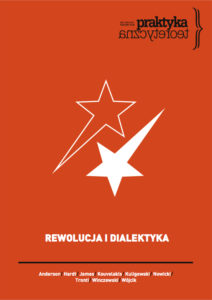Samodyscyplina i wszechstronność – człowiek komunistyczny w ujęciu Lenina
Self-discipline and Versatility - the Lenin's Communist Man
Author(s): Florian NowickiSubject(s): Political history, Marxism, Sociology of Culture, History of Communism
Published by: Uniwersytet Adama Mickiewicza
Keywords: communism; communist man; socialism; Marx; Lenin; Krupskaya; work; leisure; liberty; kingdom of freedom;
Summary/Abstract: The article is devoted to the concept of the communist man that emerges from the writings of Vladimir Lenin. The author emphasizes that it is an incomplete concept, and therefore ambiguous - provoking us to fill its “gaps” with material that does not refer directly to the issue of a communist society. The reconstruction in this article follows two concepts: self-discipline and versatility. However, the proposed distinction between positive and negative self-discipline is here of a great importance. Through positive general self- discipline the author understands self-discipline as work for the greater good of society, with the key area of this kind self-discipline being the realm of work. It is therefore mainly a self- disciplined work - necessary due to the absence of mechanisms of economic coercion under communism (embodying the principle of the distribution according to ones needs, rather than ones labor input). By negative self-discipline the author understands refraining from acts that are harmful to society, that is, so-called “excesses” – a necessary element due to the stateless nature of a communist society. Self-discipline (positive and negative) is correlative to communist negative freedom, which consists (in Lenin’s terms) of the absence of any external mechanisms of discipline and thus any “management” of people (even if ultra-democratic in character). In turn, characterizing the Leninist understanding of the postulate of versatility, the author cites, among others, the concept of polytechnic education (put forward by Marx and developed by Nadezhda Krupskaya), the problem of “intelligentsialization” of the proletariat, and therefore the postulate of the assimilation by the proletariat of the positive qualities of the intelligentsia (the extent of its horizons, the capacity for the independent and critical “survival” of humanity’s cultural heritage), however separated from its negative traits (lack of teamwork skills).
Journal: Praktyka teoretyczna
- Issue Year: 2016
- Issue No: 20
- Page Range: 143-180
- Page Count: 38
- Language: Polish

